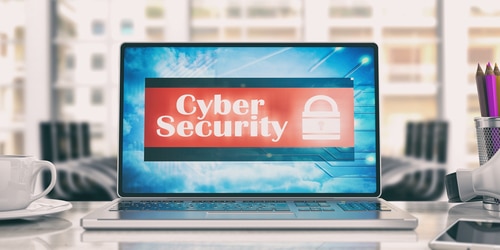Cyber Insurance and Other Internet Safety Measures
Posted October 19, 2017 in Cyber insurance
For the average person, not a day goes by without using the internet at least once. With a vast number of individuals and organizations across the globe doing the same thing, you never know exactly what kind of people you could encounter online. Therefore, safety and security measures are of paramount importance. A user’s personal safety and security can quickly be compromised through their own mistakes or through the mistakes of organizations that have access to their information. Cyber insurance and other internet safety measures can help you protect yourself and your clients.

Cyber Insurance
Cyber insurance protects businesses and users from risks such as data breaches and computer hacking. Information technology infrastructure can be safeguarded with cyber insurance solutions. This type of insurance covers businesses that legitimately collect customers’ personal information so that they are not liable if their information system is breached by a hacker or other criminal. Protection against cyber extortion, funds transfer loss, data loss or destruction, and other measures can be included in cyber insurance. Cyber insurance for businesses is crucial, especially if they store customer data.
Email Phishing
Many internet scammers will disguise themselves as trustworthy sources and send emails or instant messages with links that will require users to enter their private information. Intelligent scam artists will devise fake websites that look like their legitimate counterparts so that users will fall for the scam. If unsuspecting users provide personal identity information, passwords, bank account information, or credit card information through these links, this information is then stolen and abused. Careful monitoring of your emails can help you recognize email phishing. Any possible phishing email can easily be verified by contacting the company directly to determine the email’s legitimacy. If you’re told to visit a website to update your information, type the company’s website URL directly into your browser (or the company name in your search engine) instead of clicking the link in the email. See if the email includes specific information, such as your actual username or partial bank account number, because phishing emails are typically generic and will not have this type of information. Spam filters and certain web browsers can also alert you regarding known phishing sites so that you know to avoid them.
Malware
Malware and spyware are malicious software disguised to look like standard software programs. These programs are usually spread through email or unofficial software download sites, especially those marked “free download” for software that typically costs money. Malware can collect and transmit your passwords or other information, and it is often impossible to detect. Malware protection can help you safeguard your computer. It is best to be extra cautious when downloading any new software and make sure that it always comes from an official source.
Personal Safety Risks
Digital communication through social media and other venues can make you vulnerable to malicious users. Cyberstalking, cyberbullying, obscene content, online predation, sextortion, and other dangerous personal hazards can arise, especially if users aren’t careful but sometimes even when they are. Since children are especially vulnerable, it is often recommended to limit or closely monitor their internet usage. Exercising added caution, especially with children’s use of the internet today, will help protect you and your family.